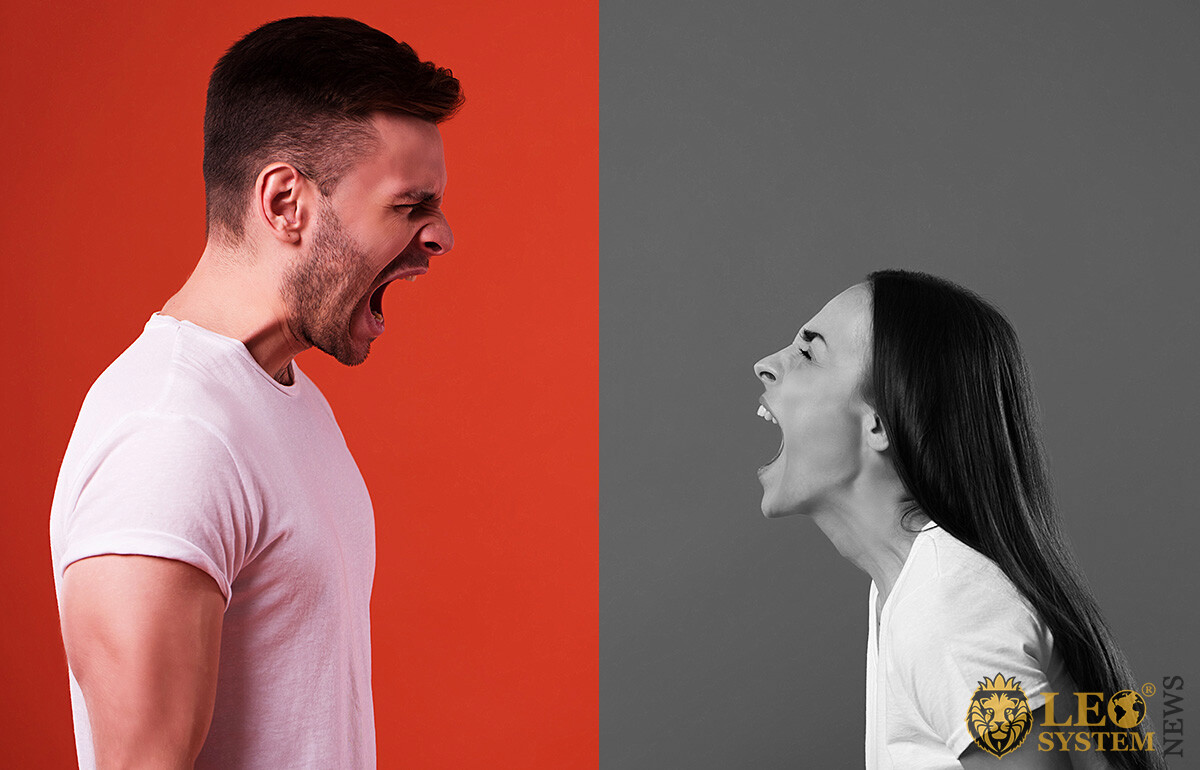Emotions and relationships are intertwined. Every day, we engage in different actions that trigger diverse emotions, and they are all dependent on the things we did during the day. Moreover, we all are coming from different backgrounds, which is why we have different reactions to things.
So, we should understand that you might react positively to a certain event while another person reacts negatively to that same event. It takes emotional intelligence to understand things from people’s point of view, bearing in mind that the world does not revolve around you.
In this article, we are going to bring to the limelight the different emotions that exist and how do emotions affect relationships.
What are Emotions?
These are responses to events. They can either be positive or negative; whichever it is, they are very important for our daily existence.
Negative Emotions.
These are often considered not pleasant because they are usually triggered by events and actions that didn’t go down well with us. These events can come from partners or even from ourselves. Some examples of these negative emotions include anger, annoyance, fear, sadness, guilt, apathy, despair.
Positive Emotions.
These are the ones considered pleasant enough. Unlike the negative, it brings us contentment and peace. It also gets triggered by our daily activities and actions. Examples of these include joy, happiness, contentment, cheerfulness.
Whatever emotions we feel, it could either make or mar our relationships depending on how we handle it.
How do Emotions Affect Relationships?

The mere fact that we are getting involved with someone we just met is enough indication for us to expect different types of emotions and reactions from them. We need to know that the two different people in a relationship will have different reactions to different events.
A situation that caused another person sadness might go completely unnoticed by the other. What this means is that once a relationship is involved, our tolerance level should be very high.
What we do with the different emotions we feel will go a long way in determining how peaceful or chaotic our relationship will be. While growing up, some were taught never to express their emotions, especially the make folks.
Emotions are considered a weak thing for men. That is why most men always feel alone because they don’t know what to do with the plethora of feelings going on inside them. For women, it is different.
Expressing emotions for women are considered the strong thing to do. For the male folk, they might feel that females are exaggerating when they start throwing tantrums due to their emotions. But in all these, emotions are better when expressed, especially in relationships because it helps to foster understanding and growth.
Positive Emotions in Relationships.
It is always a beautiful thing to come back and find your partner extremely happy. This brings some sort of fulfillment and usually pushes us to do more. These positive emotions are usually experienced at its highest point when the relationship is new. As at that time, the individual involved is yet to see the weak points of their partner, so it is all joy.
These positive emotions could also be due to gifts, compliments, kindness, and other good things received from the partner. In all, positive emotions promote our relationships.
Negative Emotions in Relationships.
Just like the positive makes us aware of the fact that we are doing well, the negative should also serve as a red alert to tell us that everything is not going down well. Negative emotions are very good for a relationship, depending on how it is being handled.
Anger not adequately expressed can further lead to resentment. This means that the way we handle them can go a long way to determine if it is going to make or mar our relationship.
Let’s look at the negative emotions and how they affect our relationship.

-
Anger.
So many things can cause a feeling of anger. Sometimes it doesn’t even have anything to do with our partner. It could be due to an ugly event in the office, running into an old-time enemy, having different failed transactions. Some other times it can be caused by our partner. But then, if handled badly, it can affect our relationship drastically.
When we are angry, we tend to do so many things like throwing things around, saying a bad word or doing other unpleasant things. The worst part is that we often are not in control when we are angry.
Bear in mind that continuous anger can have a very negative effect on ourselves and our partners because it is tiring to always come back to an angry face. So try as much you can to have good control of your anger attitude and always talk it out.
On the other hand, when your partner is always angry, it could be a sign of things you are not doing well, so always reach out and find out what the problem is.
-
Annoyance.
This is a weaker form of anger. It could be caused due to some behaviors of your partner that is not pleasant. It could be that they chew out loudly when they eat, or irritatingly dragging their feet, or even being too obnoxious.
Whatever the reason is, you have to handle it because it can affect your relationship if not addressed. Always bring whatever annoys you to the notice of your partner to avoid affecting what you feel for them.
-
Anxiety.
This often occurs when you or your partner become very unbearable. Some people tend to manage their emotions by becoming drunk, and after being drunk there tend to be aggressive. This can make whoever that is at the receiving end, to recoil at the sight of their partner, because they don’t know what to expect from them at that point.
If your relationship gets to this, reach out to your partner, so they can correct it to avoid affecting what you share. If the problem is from you, then address it as soon as possible.
-
Sadness.
So many things can cause one to be sad in a relationship. It could be due to neglect from their partner, or maybe you have suddenly stopped feeling happy. You might be doubting if you even made the right choice of partner, but in all these, not working on it can cause a huge problem in your relationship. So try and point it out to your partner.
-
Guilt.
This is a very powerful emotion that if not addressed properly can cause serious damage. If there is something you did that you are not proud of, don’t hesitate to talk to your partner about it, because they might also be hoping to hear that apology from you.
Guilt, when not addressed, might lead to frustration, and you might see yourself losing everything you have worked for in your relationship.
-
Apathy.
This works just like guilt but in this case, you will find yourself losing interest in the things you previously enjoyed. When this is not handled properly, it can lead to complete disinterestedness, and it will drastically affect your relationship. So, always discuss with your partner and find out what’s wrong and seek to find how you can amend it.
-
Despair.
This is the worst of it all, and it comes when you feel neglected. Sometimes, when you get tired of being angry without any positive response from your partner, you start having a feeling of despair.
So, always pay attention to your partner and their complaints, because it will go a long way in strengthening your bond and making you both better people.
Whatever emotions it is that you are feeling in your relationship, seek so well to address it as it will help correct all wrongs and save you the distress of having a broken relationship.
The Final.
Emotions are very important in relationships be it negative or positive. They keep you in check and help you know if your relationship is progressing or depreciating. The way you handle it will determine how it will affect you.
Also bear in mind that most of the emotions you feel are all in your head, if you don’t point it out to your partner, they might not even know that you are hurting. How do emotions affect relationships? Is a question that helps us to identify where we need to control our emotions and where we need to express them.
Read the article: Signs of Selfishness in Relationships
































